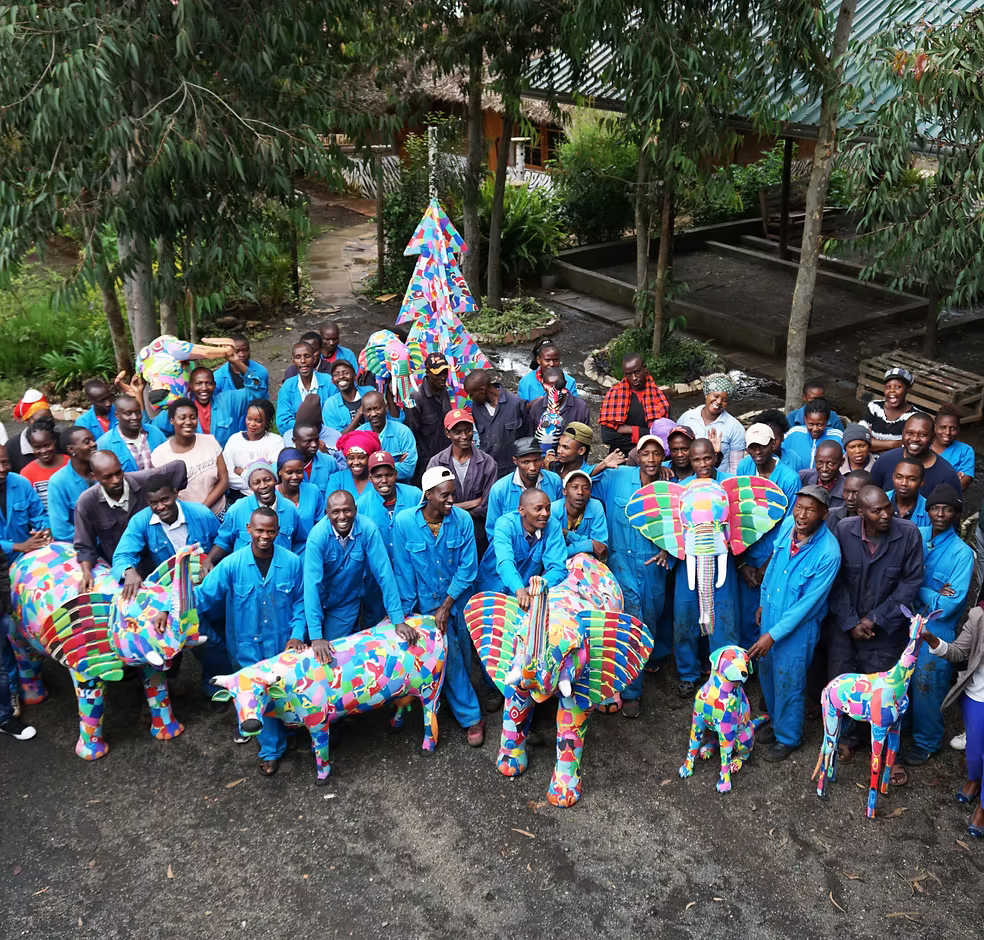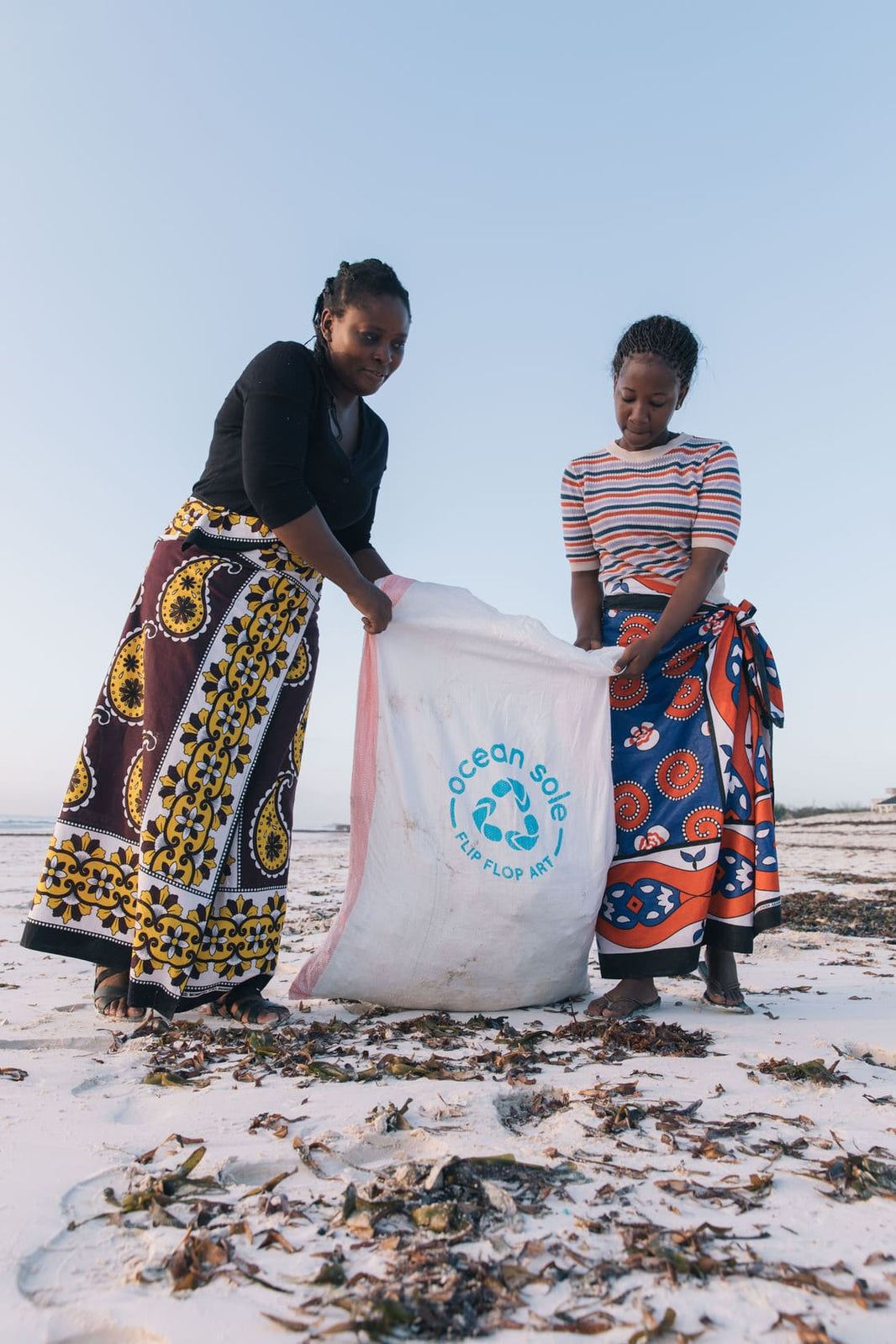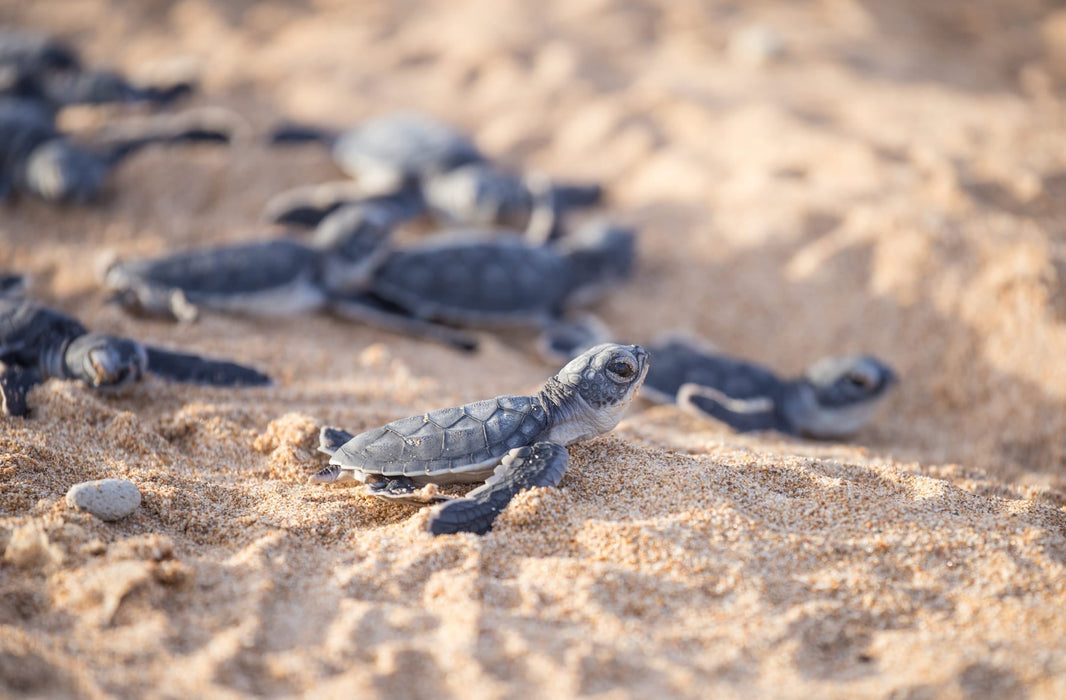Between absorbing up to 25% of carbon dioxide emissions from the atmosphere and nearly eight metric tons of plastic refuse each year, our oceans are working hard to support modern life. Greenhouse gasses, noise pollution from tankers, and chemical contaminants from offshore drilling platforms are the chief concerns regarding what harms our seas the most.
The good news is there are steps you can take to help reduce the damage to the ocean. Even if you live in a landlocked state, you can find ways to channel your passion and concern for the ocean into action.
Table of contents
What are the main ocean pollutants?
Increase your ocean IQ
Educate yourself about the ocean
Learn about marine life
Join an ocean conservation organization
How do I protect the ocean from home?
How to keep track of your eco-friendly habits
Facts on ocean conservation
What are the main ocean pollutants?
Sadly, the ocean can be something of a dumping ground for industrial waste, household refuse, and other contaminants. However, there are some key areas where you can focus your at-home conservation efforts.
Chemicals – Many manufacturing processes are less than environmentally friendly, resulting in harmful chemicals leaking into oceans and damaging the local sea life. From macro to micro, these chemicals are detrimental to everything from whales to plankton and all the unique marine life in between.
Greenhouse gasses – Burning fossil fuels for daily activities like commuting, doing laundry, and online shopping means more harmful compounds are released into the air. This might not sound like an ocean problem at first glance, but the briny blue sea soaks up as much as a quarter of the airborne greenhouse gas emissions that cause climate change.
Oil spills – Most of us are familiar with the heartwrenching sight of adorable ducks covered in oil being lovingly soaped off by volunteers after an oil spill. The undersea impacts of these accidents get much less media attention, but that doesn’t mean those ocean animals are less vulnerable to the toxic effects of oil spills. Think of oil mixing into seawater like a harmful chemical spraying into the air over your neighborhood – it’s bad for everyone.
Increase your ocean IQ
The ocean is one of the areas of earth we know the least about. That being said, there are leagues of info out there if you get into the undersea exploration mindset. Here are a few easy ways you can up your ocean IQ:
Educate yourself about the ocean
Learning new and fun undersea facts is one of the best ways to motivate yourself to find the area of ocean conservancy that speaks the most to you. Whether you want to save the turtles on tropical beaches or help out with a local shoreline cleanup, learning some of the staggering facts about ocean pollution is one of the best ways to start.
Learn about marine life
If you’re into social media, there’s a treasure trove of ocean conservation facts floating around. Accounts like Ocean Life, World Wildlife Federation, and the National Atmospheric and Oceanographic Association are wonderful resources that give informative info in bite-sized posts.
Another powerful way to get into ocean conservation from home is to join groups on social media that organize aid efforts, volunteer programs, or other means of protecting our oceans. Be wary of unverified accounts claiming to provide “facts” – there’s misinformation out there, so sticking to reputable sources is your best bet.
The most publicized animals aren’t the only ones who are affected by the pollution in our oceans. The degradation of our seas impacts many species. Here are just a few of the enormous list of aquatic life that suffers from pollution:
- Whales
- Turtles
- Dolphins
- Penguins
- Fish
- Coral
- Aquatic plants
- Microorganisms that support oceanic life
Join an ocean conservation organization
For those who want to venture out of their homes or aren’t keen on social media, there are plenty of local groups you can connect with to buoy your efforts to save the ocean.
If you’re close to a shoreline, chances are several local groups are dedicated to beach cleanups and other efforts to rid the sea of single-use plastic in particular. Our shorelines see so much waste left behind by negligent beachgoers or washed up from offshore, so there’s plenty for local groups to do.
If you’re unable to walk the beach for weekly cleanups or it doesn’t fit into your schedule, not to worry. Many larger ocean conservation organizations have opportunities for ocean-loving philanthropists like you to donate, plan volunteer trips, or otherwise contribute to saving the oceans from home.
Watch some documentaries about the ocean
If you have an affinity for documentaries in other genres and you haven’t checked out the incredible oceanographic productions, do yourself a favor and get into it. Documentaries on marine animals, pollution, and the specifics of each climate will leave you awestruck. It’s as easy as going onto your favorite streaming service and searching for keywords like “ocean pollution” or “save the turtles.” The next thing you know, you’ll be swimming in beautiful imagery and informative content.
Knowledge is power, and saving the ocean is no exception. Filmmakers have focused on the deep blue sea over the past several years, capitalizing on new video technology to evolve their craft. The result is an array of stunning documentaries showing the intricacies of marine life in glorious detail. Below are some popular documentaries on ocean conservation to get you started:
- Chasing Coral
- The Cove
- Plastic Ocean
- Mission Blue
- Racing Extinction
- The End Of The Line
Talk to your community
If acquiring knowledge is half the battle, sharing it with your community is the other half. The damage happening to the world’s oceans is so dramatic it’s hard not to feel compelled to do something when you find out about it. No one likes having an issue thrown in their faces, but sharing interesting facts – like that seismic blasts from offshore drilling can travel up to 2,500 miles underwater – are interesting conversation topics and helpful to share.
In addition to sharing your ocean conservation knowledge with your friends and family, you can make a difference by ensuring your concerns are heard by local legislators. The louder and more plentiful the voices, the harder it becomes for the government to skirt the issue of battling pollution in our oceans. It’s a different type of activity than going to your local beach and collecting plastic garbage, and it’s equally important.
How do I protect the ocean from home?
There are several things you can do to help protect the ocean and sea life from the comfort of your own home.
Mind your carbon footprint and reduce energy consumption
Our oceans absorb greenhouse gas emissions in much the same way the atmosphere does, and the impact on marine animals can’t be overstated. It’s easy to overlook since undersea creatures are out of sight more so than their land-living relatives, but that doesn’t mean they don’t suffer the same consequences.
Keeping a close eye on your carbon footprint and taking measures to reduce your personal impact go a long way.
Avoid single-use plastic
Chances are you’ve noticed the recent efforts of legislators and businesses alike to move to biodegradable and recyclable packaging. They’re doing this for a good reason. Plastic items like straws, grocery bags, and soda can rings don’t break down quickly, and when they find their way to our briny seas, they wreak havoc on whales, turtles, dolphins, seals, and more.
Take care of the beach
Many sea-faring critters spend time on or around beaches, meaning that any garbage left on the shores is a potential hazard. If you can’t participate in a beach cleanup regularly, find groups to donate funds to support volunteers who have to pay for gas money, garbage and recycling disposal fees, and other efforts.
Reduce, reuse, recycle
Manufacturing is one of the primary contributors to the contamination of oceans and water use. If you want to focus your efforts on water conservation, reducing the number of new products you purchase is a great place to start.
By taking the extra time to cruise your local thrift stores instead of heading to a big box company for a new armchair or hallway table, you’ll be removing the demand for new goods. With some savvy shopping or a weekend DIY project, you’ll have a new piece of furniture or the perfect outfit to suit your style.
Make your laundry routine more eco-friendly
Old washing machines and dryers use way more energy and water than newer, more eco-friendly models. By making small changes like air drying your laundry and switching to a cold water detergent, you’ll be helping to reduce consequences to our oceans – and you’ll have clean, beautifully scented clothes.
Reduce fuel consumption
Anything you can do to use less fossil fuel helps to reduce the emissions absorbed by the ocean. You don’t need to become a full-time eco-warrior to make a difference – just a walk or bike to the store a couple of times a week will help.
Shop locally and sustainably
Not only does shopping locally help reduce the greenhouse gasses produced by transportation, but you’ll also be supporting local business owners. Make time to take a leisurely stroll through your local main street and see what gems you can find – you may be surprised.
Dispose of hazardous waste responsibly
Batteries, electronics, and items like old paint cans can be tempting to toss in the trash with your regular household garbage, but they must be disposed of with care.
If you’re unsure of the protocol for safely getting rid of these items, check out the directions printed on the product itself or on the label. Any hazardous material will have disposal info in an easy-to-find location, making it easy for you to do the right thing.
Avoid fast fashion
Fast fashion, otherwise known as inexpensive clothing that closely follows every online trend, is notoriously hard on the environment. With loose production laws and offshore manufacturing, fast fashion companies skirt the ethical rules that local fashion companies are held to. There’s no question that buying local, ethically manufactured clothing costs more, but the sustainability aspect also can’t be denied.
How to keep track of your eco-friendly habits
With some easy daily reminders, you can shift your routine to be more eco-friendly and do your part to reduce your carbon footprint and save the ocean from home.
Turn off the water when brushing your teeth – This is a painless way to do your part for our seas. Leave a note on your bathroom mirror to remind you, and in no time, you’ll get into the routine of turning off your water when you brush your teeth.
Time your showers – It’s easy to lose track of time when you’re basking in the steamy goodness of a hot shower. Ten minutes turn into fifteen, and before you know it, your shower is much longer than you think. Setting a timer lets you accurately track how long you’re soaking.
Opt for showers instead of baths – There was a time when showers were the less eco-friendly option. However, with advances in low-flow plumbing fixtures, running your shower is now more environmentally friendly than filling your bathtub.
Use a bucket to collect water while your shower warms up – Showers take a minute or two (at best) to warm up, and collecting that water in a bucket lets you use it for things like watering your garden or houseplants.
Use your washer and dryer only when you have a full load of laundry – Tempting as it is to throw on a load of laundry a few times a week, it’s far better for the ocean if you can wait for a full load. Run your washing machine once a week with high-efficiency detergent on the cold cycle, and you’ll use far less energy overall.
Let your clothes hang dry in the sun – There’s something wonderful about sinking into a bed with sheets that have dried in the open air – not to mention it saves the energy it takes to run your dryer. Even if you have a few loads of laundry to do, if you wait to run the dryer until it’s all washed, you’ll have a full dryer load and fresh clothes from the line.
Wait for a full dishwasher – Many of us are used to using a dishwasher and running the tap to handwash other dishes. Running your kitchen sink uses a ton of extra water, so make a point of filling your sink instead of running the tap to wash dishes.
Make recycling easy – Good habits are easier to create when you make things simple for yourself and your family. A quick task like adding a recycling bin next to your regular garbage will likely encourage you and your family to recycle more.
Get rid of single-use plastics – This type of product pollutes our waterways. Grocery bags, plastic utensils, and plastic packaging are all responsible for harming ocean animals daily, making it well worthwhile to cut down on them.
Facts on ocean conservation
The ocean is interesting, and sea-faring facts are a great conversation topic. Here are just a few to get your interest piqued:
- Single-use plastic items make up 40% of plastic products manufactured each year.
- Plastic bags can take hundreds of years to break down.
- There is an estimated 14 million metric tons of garbage resting on the seabed.
One of the many consequences of greenhouse gasses being absorbed by the ocean is that it makes it more difficult for bivalves like clams, oysters, and mussels to form shells.
With the easy tips above, you’ll be on your way to saving the ocean and the incredibly beneficial marine life that calls those glistening waters home.
--








